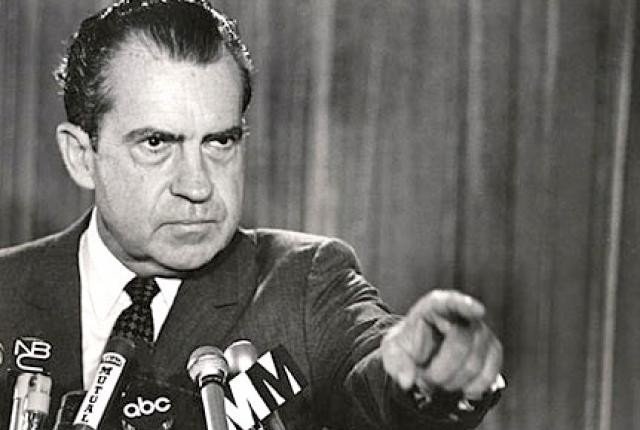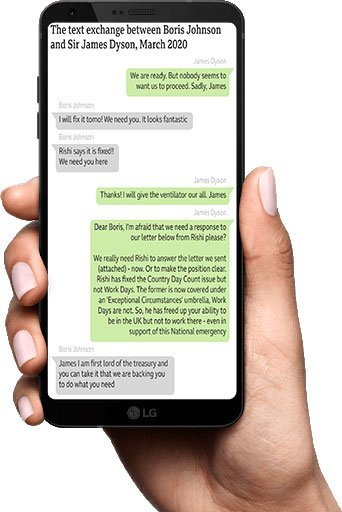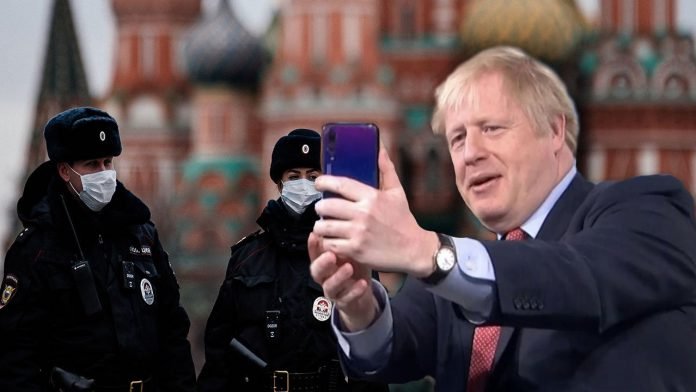Lobbying, corruption, and cronyism needs to be investigated but when the prime ministers own text are leaked then the prime minister becomes a security risk
While an inquiry into the leaked text has been ordered this does not cover the security issues relating to the leak according to the Independent.
The prime minister’s official spokesperson said that the internal inquiry would be led by the Cabinet Office and is not intended for publication.
The national security adviser has not been asked to take part in the probe, and it is understood that neither the police nor security agencies have got involved.
Downing Street said that the inquiry will not consider a separate leak of text messages from Saudi Crown Prince Mohammed bin Salman asking Mr Johnson to intervene in the proposed takeover of Newcastle United FC.
Mr Johnson’s spokesperson confirmed that the prime minister remains committed to his promise to MPs on Wednesday to release details of his contacts with Mr Dyson.
But he was unable to name a date for the release, saying only that it would happen “shortly”.
Soon after the leak on Wednesday, the spokesperson told a Westminster media briefing that there was no plan for a leak inquiry.
The failure to order an immediate probe prompted speculation in Westminster that the PM may believe he already knew who was being the security breach, but prefer not to risk further publicity by mounting an inquiry.
His spokesperson said today: “As usual, we keep these things under review and we have decided to undertake this internal inquiry.
The text messages, obtained by BBC political editor Laura Kuenssberg from an unknown source, showed Boris Johnson agreeing to try to “fix” tax problems experienced by Dyson staff working on the development of ventilators in the early stages of the Covid-19 pandemic last spring.
The Texts published by the BBC showed the prime minister promising Sir James he would “fix” an issue on the tax status of Dyson staff working in the UK during the pandemic.
Labour has said the messages are part of a pattern of government “sleaze”.
The PM said he made “no apology” for trying to get ventilators for the NHS.
Asked about the leaks, Mr Johnson’s official spokesman said: “We have instructed the Cabinet Office to look into this.”
Conventional wisdom would suggest in normal circumstances a text message between two people would remain private unless one or the other leaked that text, however, in these circumstances, it would not be unreasonable to believe nether Boris Johnson or James Dyson leaked the Text in question, therefore it would only leave us with the conclusion that a security breach has transpired.
A security breach involving the UK Prime minister this is clealy a natinal security issue. From the content of the text it is quite clear the Prime minister is not averse to discussing matters of state on his mobile phone therefore it must be in the public interest for an inquiry into not only whether the ministeral code was broken but if there has been a natinal security breach.
This may not be a Watergate moment but it’s certainty disconcerting that a prime minister has used his mobile to discuss issues of state and that information has leaked.

Most people will be forgiving on the issue of and question of tax, allowing Dyson’s employers to work in the UK to build life saving ventilators and not be penalized by a higher UK tax rate. The fact that no ventilated will do it is irrelevant. However, the conversation relating to this on a mobile phone is a matter for the ministerial code but security questions surrounding the British Prime ministers text and leaks thereafter to the public is an issue that affects national security. God forbid he uses his mobile phone to talk about security or does he?
Labour leader Sir Keir Starmer said the issue wasn’t about getting hold of ventilators but “whether those who are well known to the party, the Tory party, friends, etc who’ve got the prime minister’s number can access him and ask about tax breaks”.
He said people who could access the prime minister directly were in a “magic circle,” while others were left “outside”.
He urged the prime minister to “disclose all of the contacts that he’s had”.
Starmer, former DDP often boasts of his years in that position in one PMQs he declared: “When the prime minister has worked with the security and intelligence forces, prosecuting criminals and terrorists, he can lecture me.”
Maybe while rubbing shoulders with the security agencies Starmer should have picked up a few points like understanding security issues and not just the fallout from them. Starmer should not only be focusing on the sleaze but be asking how the contents of the prime minister’s phone ended up on the table of a BBC journalist.
Laura Kuenssberg should not give up her source but the security services should do their job and investigate the leak.
When there are only two people involved in a conversation and one of them happens to be the Prime minister as Boris Johnson stated the ‘First Lord of the Treasury‘ be it verbal or text then that conversation is leaked, question have to be asked about security and hacking.
This is not about Laura Kuenssberg source directly, there are other questions to answer, like why the Prime minister is disusing state business on an unsecure device and how that business was obtained by a third source along with what other information may or may not have been obtained.
An investigation would open up a few uncomfortable questions for Boris Johnson and other politicians that seem to think it’s ok to talk state affairs on their mobile phone irrespective of their security value.
Sources can still be protected but what about national security?
The main legislation governing the protection of journalistic sources is the Contempt of Court Act 1981 (CCA 1981). Section 10 provides that in a free and democratic society there is a need to protect journalists’ sources and presumes in favour of those journalists wishing to do so. There are however exceptions to this presumption where disclosure of the information will be deemed necessary. These are:
- in the interests of justice;
- in the interests of national security;
- for the prevention of disorder or crime;
In the interests of national security
Where national security is concerned the necessity for disclosure of the source will be almost automatic. Keeping information concerning national security confidential outweighs the right to keep the source confidential.
This is because the people divulging information regarding national security will usually be those employed in government and therefore have an obligation of confidentiality. If someone in this position is willing to provide information to the press, they are not fulfilling their role as a trusted servant to the government and will need to be identified and removed from their position to protect national security.
Source protection, sometimes also referred to as source confidentiality or in the U.S. as the reporter’s privilege is a right accorded to journalists under the laws of many countries, as well as under international law. It prohibits authorities, including the courts, from compelling a journalist to reveal the identity of an anonymous source for a story.
The right is based on a recognition that without a strong guarantee of anonymity, many would be deterred from coming forward and sharing information of public interests with journalists, and to be fair no one needs Laura Kuenssberg to give up her source and nor should she, this is a matter for the security services no matter what downing street wants or is hiding but for the sake of our security someone should find out how the UK’s prime ministers communications have been leaked.
The Tax issue is none runner but the security issue really needs chasing.

‘We need you here’
At the beginning of the coronavirus pandemic, the government asked companies, including Dyson, to help supply ventilators.
Sir James sought assurance from the Treasury that his workforce would not be hit with extra taxes if they came to the UK to help with the effort.
Having failed to get a response, he contacted the prime minister directly via text.
In the messages seen by the BBC, Mr Johnson told Sir James: “[Chancellor] Rishi [Sunak] says it is fixed!! We need you here.”
In a later text Mr Johnson said: “I am First Lord of the Treasury and you can take it that we are backing you to do what you need.”
In a statement, Sir James said he was “hugely proud” of Dyson’s actions in the pandemic.
He added that Dyson had not “any benefit from the project” and that the company had “voluntarily covered the £20m of development costs”.
“Not one penny was claimed from any government, in any jurisdiction, in relation to Covid-19.”
The big question: What else was on Boris’s phone and who had access, if not Johnson’s phone then how and who?
Support Independent Journalism Today
Our unwavering dedication is to provide you with unbiased news, diverse perspectives, and insightful opinions. We're on a mission to ensure that those in positions of power are held accountable for their actions, but we can't do it alone. Labour Heartlands is primarily funded by me, Paul Knaggs, and by the generous contributions of readers like you. Your donations keep us going and help us uphold the principles of independent journalism. Join us in our quest for truth, transparency, and accountability – donate today and be a part of our mission!
Like everyone else, we're facing challenges, and we need your help to stay online and continue providing crucial journalism. Every contribution, no matter how small, goes a long way in helping us thrive. By becoming one of our donors, you become a vital part of our mission to uncover the truth and uphold the values of democracy.
While we maintain our independence from political affiliations, we stand united against corruption, injustice, and the erosion of free speech, truth, and democracy. We believe in the power of accurate information in a democracy, and we consider facts non-negotiable.
Your support, no matter the amount, can make a significant impact. Together, we can make a difference and continue our journey toward a more informed and just society.
Thank you for supporting Labour Heartlands












